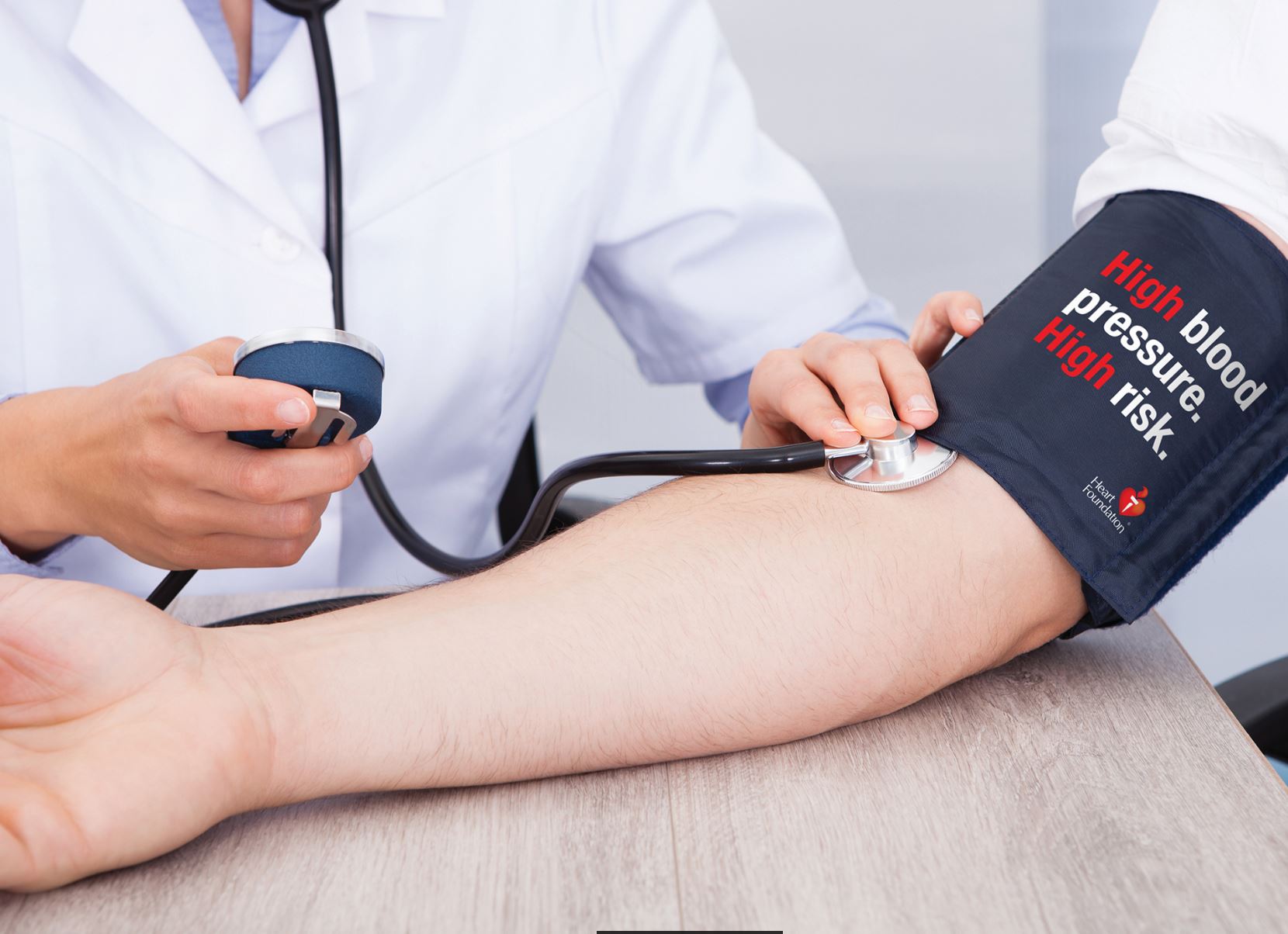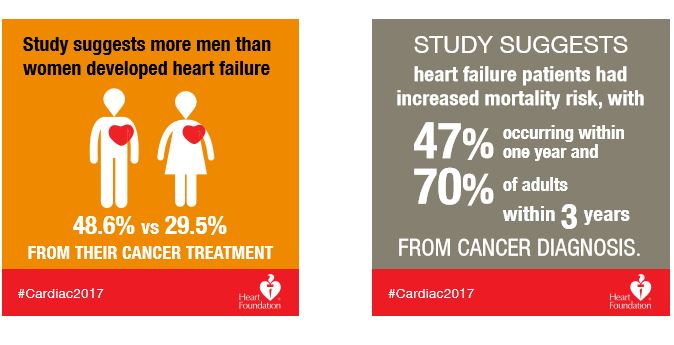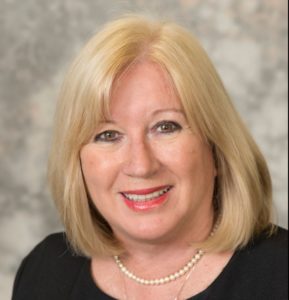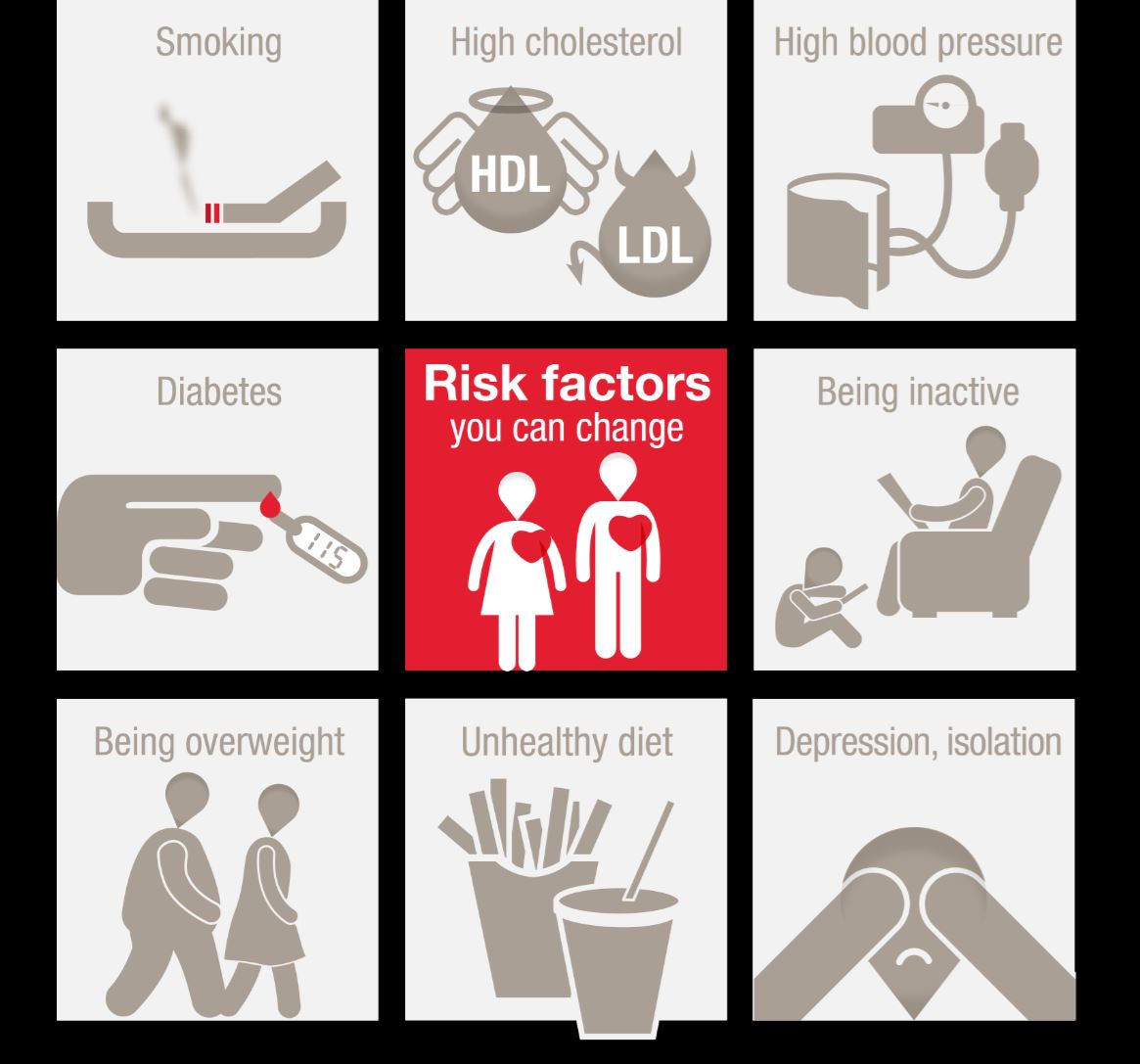
Cancer patients have a high chance of heart failure within 12 months of diagnosis and subsequent chemotherapy treatment.
The Heart Foundation-funded study, led by Flinders University Professor Robyn Clark, will be presented at the inaugural cardiovascular research showcase in Adelaide today.
The Australian study of 15,987 patients identified 8,339 who received chemotherapy (817 children and 7,522 adults) subsequently received hospital treatment for heart failure, with 70% of children and 46% of adults having an index admission within 12 months of their cancer diagnosis.
The research aimed to explore cardiac toxicity both quantitatively and qualitatively to gain greater understanding through a meta-review of 18 systematic reviews, linked data analysis, risk assessment, process mapping, patient interviews and a Consumer Consensus Statement.

Professor Clark is the Heart Foundation Future Leader Fellow (Acute Care and Cardiovascular Research) at Flinders University.
“Cardiotoxicity is a condition where there is damage to the heart muscle. It can be a complication from some cancer therapies, and as a result the heart may not be able to pump blood throughout the body as well,” says the Professor of Acute Cardiovascular Care and Research in the College of Nursing and Health Sciences at Flinders,
“Despite being aware of this risk for over thirty years, currently there is no high-level evidence in Australia to guide clinician decision-making in the prevention, detection or management of cancer treatment associated cardiotoxicity,” Professor Clark says.

Key outcomes of the research showed:
- More men than women developed heart failure (48.6% versus 29.5%).
- A greater proportion, or almost 83%, had a haematological cancer compared with breast cancer at 16.9%.
- After co-variate adjustment, heart failure (HF) patients had increased mortality risk compared with non-HF patients with 47% occurring within one year and 70% within three years from cancer diagnosis.
- In the risk assessment part of the study, 36 breast cancer patients reported their risk factors for heart disease. Almost 20% had high blood pressure, 11% had high cholesterol, diabetes (3%), smoking (13%), regular alcohol consumption (75%) and overweight or obese (61%). There was low interest from this group to undertake any lifestyle changes with 88% stating they were not interested in doing so.
- In the process mapping part of the study 47 cardiotoxicity patients reviewed. This showed that 75% had three or more risk factors for heart disease.
- A consensus statement was developed by a group of key consumers, cardiologists and oncologists following review of this research where consensus was reached on appropriate strategies and guidelines for cardiac toxicity.
Adelaide veterinarian and breast cancer sufferer, Julia Nicholls, understands all too well the shock of learning about cardiotoxicity but says that increasing patient awareness of the risks and updating clinical guidelines, lives could be saved.
“I was first diagnosed with early breast cancer in 2010 and in 2013 was diagnosed with metastatic breast cancer. Fortunately for me, my oncologist is aware of cardiotoxicity so we are monitoring my heart closely,” says Dr Nicholls.

“I am fit, a healthy weight and a non-smoker, so not someone typically associated with heart disease. I encourage anyone with a cancer diagnosis to get a Heart Health Check with their GP and to work with their doctors to reduce their risk factors of heart disease,” she says.
“Professor Clark’s research is vital to help clinicians identify cancer patients at greater risk of developing cardiac complications and through early intervention, we hope to improve patient outcomes,” says Ms Imelda Lynch, CEO Heart Foundation SA.
“The impact of this research will be far reaching and would not be possible without the generous donations the Heart Foundation receives from our wonderful community,” she says.
The inaugural Heart Foundation and SAHMRI cardiovascular research showcase was held on 27 October.
Professor Clark’s research was published on 17 October in the Cardio-Oncology journal.

